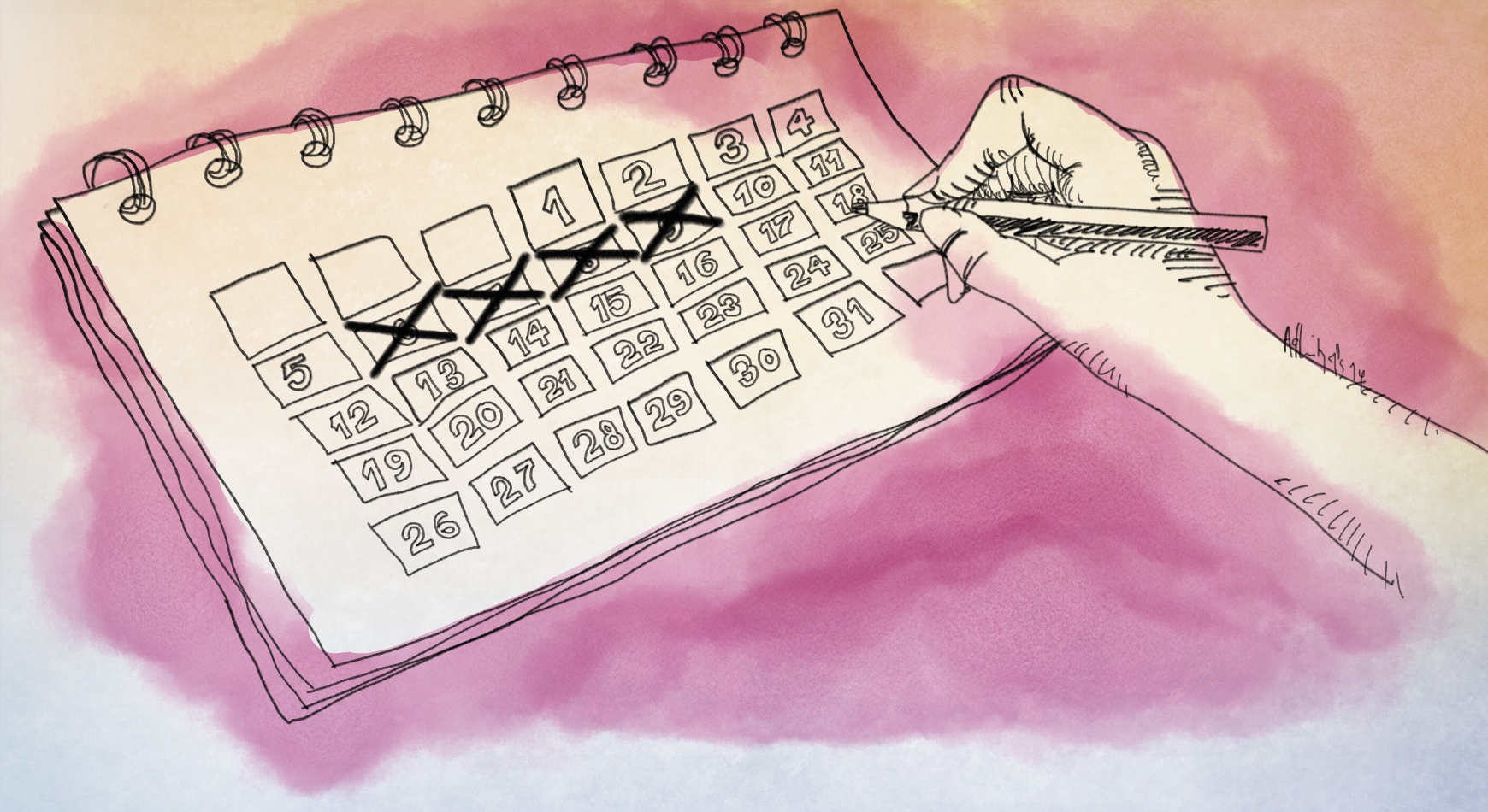In February 2018, my menstrual cycle had skipped for three months straight. As a woman with zero sexual experience with those of the opposite sex, I quickly zeroed out “pregnancy” as the reason. One trip to the ob-gyn and an ultrasound later, it was revealed that I had PCOS or polycystic ovary syndrome.
PCOS is a complex hormonal condition that impacts many aspects of a person's health, including mental health. The American College of Obstetricians and Gynecologists website said that the causes of PCOS remain unknown, but it is related to different conditions such as insulin resistance and increased levels of androgen or male sex hormone.
No one knows for sure if being overweight caused my PCOS or whether I am overweight because of my PCOS. The hormonal imbalance also makes women with PCOS more prone to hormonal acne as well as excess oil on the skin.
To top these off, women with PCOS tend to have higher odds of depression and anxiety symptoms, because of course, it’s hard to be in the right headspace when one is struggling from the irregular period, along with a surge of added weight and a hard time slimming down despite doing regular exercise and living an active lifestyle. (The doctor also mentioned infertility as one of the PCOS symptoms; but as a thriving single woman, the lower risk to conceive a baby wasn’t my top concern.)
As my ob-gyn explained about things that look like pearls but actually tiny cysts in my uterus, I let out a sigh of relief for knowing that my condition as a moody plus-size woman with acne issue who had difficulties controlling her weight wasn’t all actually caused by me being too lazy to exercise or too weak-willed to diet.
I have been fat all my life, and all those times I learned to blame my fatness on myself. Knowing that PCOS might be the root of my weight problems made me see things in different lights.
Baca juga: I Have Uterine Fibroids and It Taught Me to Listen to My Body
Spiraling Down but Getting Back Up Again
The first thing my ob-gyn told me was to lose weight since it is scientifically proven that weight loss helps regulate menstruation (he recommended intermittent fasting and a strictly no carbs diet) combined with medications to put my period schedule on track. I managed to maintain a regular schedule of menses as well as achieving my ideal BMI by the end of 2018. I felt good. I looked good. It was probably the year I took the most selfies of myself. Before that, I had never been confident enough to even see myself in the mirror, let alone taking selfies. I was proud of what I had achieved.
But one should not expect life to be all rainbow and candy all the time. The year 2019 came and brought what appeared to me as one of the hardest years of my life where I had to deal with a year-long burnout. My mental state started spiraling down fast, my drive to exercise regularly dissipated, and I took a lot of comfort in food.
When I thought I was ready to climb back up from the grey situation, the pandemic broke out and the stay-at-home protocol started, which further suppress my will to stay active. Slowly I revert back to the “old me”—overweight and unhappy.
My period then started to get less regular and it stopped altogether in the first month of 2021. Yet, it also felt like a wake-up call to get myself together again. To repeat the process that I had done before it felt exhausting, I had to kick start my exercise routine and deal with Delayed Onset Muscle Soreness (DOMS) since I have been inactive for too long. But after two months, my weight remained the same despite daily exercise and diet. I started blaming myself for being in this situation.
However, I realized that crying over spilled milk (or in this case, gained weight) is useless. While alternating my workout routine, I added 30-minute of morning walk, which in time became 30-minute of brisk walk, which later turned into morning jog. One morning, I did not realize that I had been running for 40 minutes straight–something that the “old me” wouldn’t even think about doing because I hated running. I literally had gone miles beyond my previous attempt to lose weight and this was such a fitness milestone that should be celebrated.
Baca juga: Coping with My Monthly Demons: Premenstrual Dysphoric Disorder
Only after my so-called relapse did I grasp the importance of accepting PCOS as a part of my daily hustle. Dealing with PCOS is more than losing weight, it’s about appreciating oneself to keep going despite the hardships. I might be back to square one, but still I bounced back and keep on going, which is a good thing.
I have dialed down on my strict diet because looking back to 2018, I did get the “desirable female body standard” but I was too weak from eating too little. I have learned about the preferable type of food to control PCOS (more proteins and vegetables), the more beneficial workout (fitness training), the sleep routine (no less than 7 hours), as well as regular hydration.
Living with PCOS could feel like a roller-coaster ride during premenstrual syndrome (PMS) time with its intense cravings. Tracking my period on an app helps to know that my cravings are normal so I could embrace it. I would eat what my body wants (be it chocolate, chips, or ice cream) and then move on to eat healthily the day after. When my body feels too weary to exercise, I would take a rest day and start again the next day.
In the end, I learned that while having PCOS could be a life-long battle, it is not about defeating the condition but befriending it for a better life.







Comments